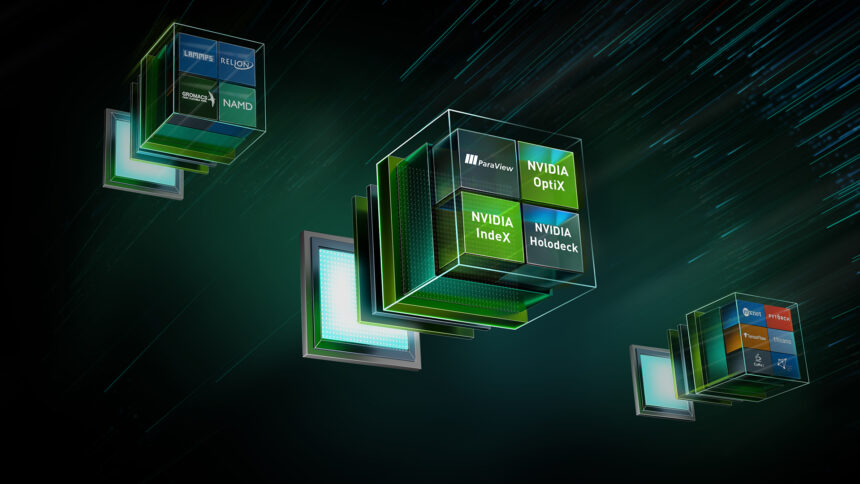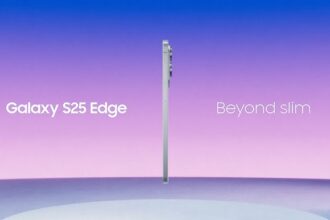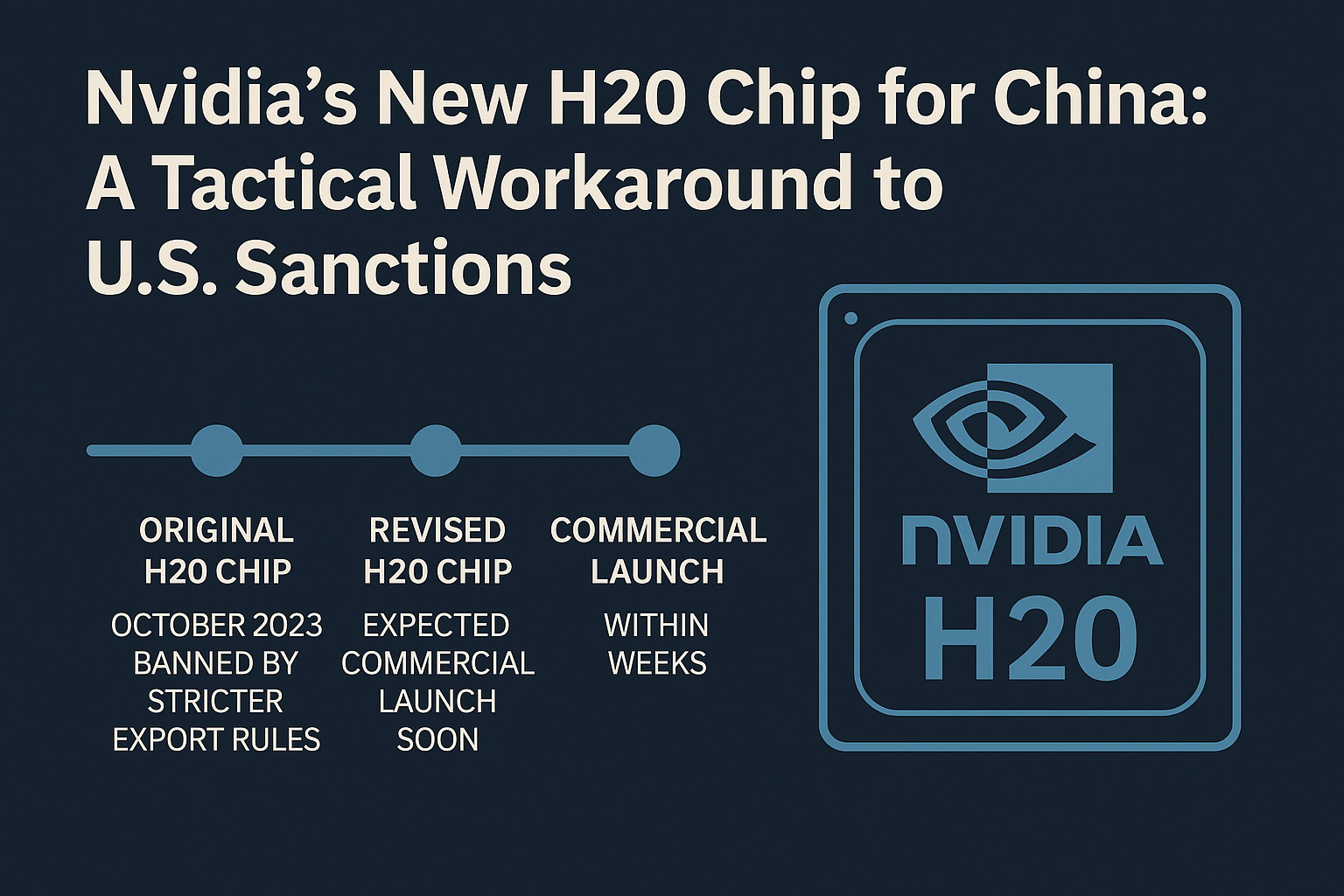Nvidia is once again caught in the middle of rising tensions between the U.S. and China over technology and trade.
Just as the U.S. imposed new export restrictions on its chips, Nvidia’s CEO Jensen Huang landed in Beijing for talks with top Chinese officials.
Under the new rules, Nvidia now needs a special license to export its H20 AI chips to China—part of what the U.S. government says is an effort to protect “national and economic security.” These restrictions don’t have an end date, which puts Nvidia in a tricky spot.
Why Nvidia?
The company designs some of the most advanced chips used in generative AI—the kind of tech behind tools like ChatGPT that can generate text, images, and more from simple prompts.
Demand for these chips has skyrocketed, helping turn Nvidia into one of the world’s most valuable companies. In fact, for a brief moment in 2023, it even overtook Apple in market value.
Because Nvidia’s hardware is so crucial to powering AI, U.S. officials have kept a close eye on its relationship with China.
The goal is to slow China’s ability to develop cutting-edge AI, especially in military applications, and to keep the U.S. ahead in the global tech race.
This isn’t the first time the U.S. has cracked down on chip sales to China. Back in 2022, the Biden administration imposed limits on advanced semiconductors.
Nvidia responded by developing the H20 chip specifically to meet those requirements. But now, even that chip is being restricted. The more powerful H100 chip was already off-limits for Chinese buyers.
Adding to U.S. anxiety is DeepSeek, a rising Chinese AI player that says it can deliver ChatGPT-like results using less powerful hardware.
That’s raised alarms in Washington—and added pressure on Nvidia, whose H20 chips are in high demand among major Chinese tech firms like Tencent, Alibaba, and ByteDance.
Now, with no grace period for the new restrictions, Nvidia says it could lose around $5.5 billion in unfulfilled orders from those companies.
Meanwhile, Chinese firms like Huawei are working on their own AI chips. They’re not quite on par with Nvidia’s yet, but analysts say these U.S. curbs could actually speed up China’s efforts to close the gap.
China still represents a major market for Nvidia—about 13% of its global sales last year—so it’s no surprise Huang’s visit is being seen as an effort to keep that door open.
During his trip, he met with key trade and government officials, and even reportedly sat down with DeepSeek’s founder.
Meanwhile in the U.S., efforts to bring advanced chip production back home are picking up speed.
Nvidia also announced plans to build up to $500 billion worth of AI servers domestically, a move former President Trump was quick to claim credit for.
Chip manufacturer TSMC, which produces Nvidia’s semiconductors, is also investing heavily in new factories in Arizona.
All of this points to a tech world that’s becoming increasingly divided. As Natixis economist Gary Ng put it, we’re heading toward “two systems”—one led by the U.S., the other by China. And in that world, global tech may be a lot less global than it used to be.














